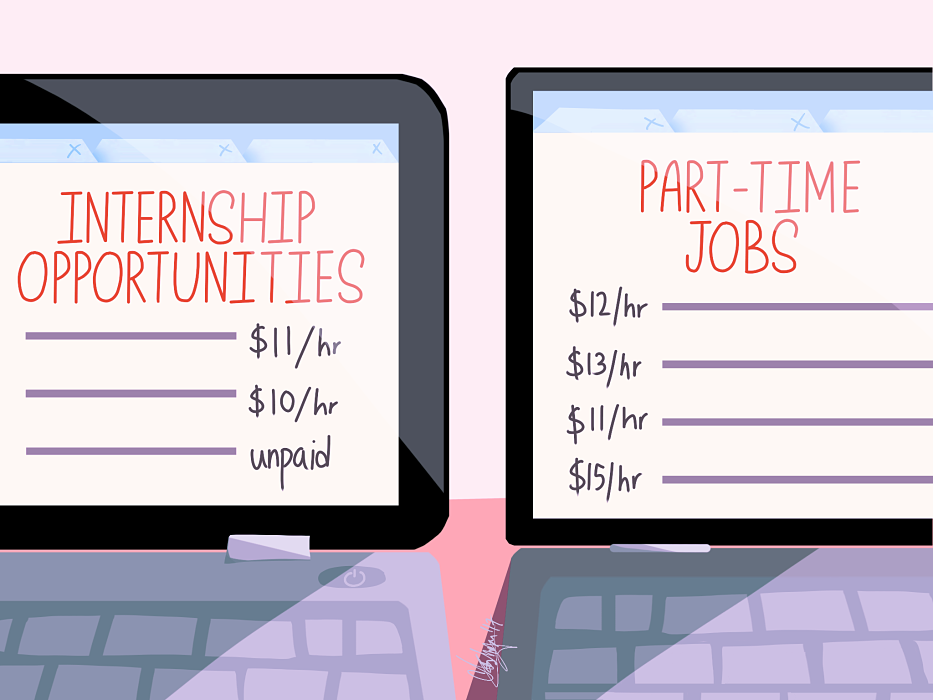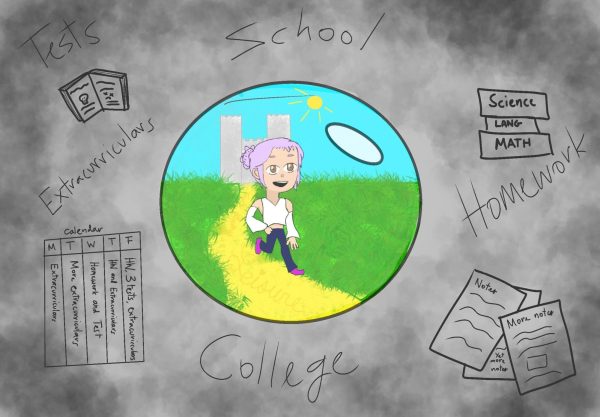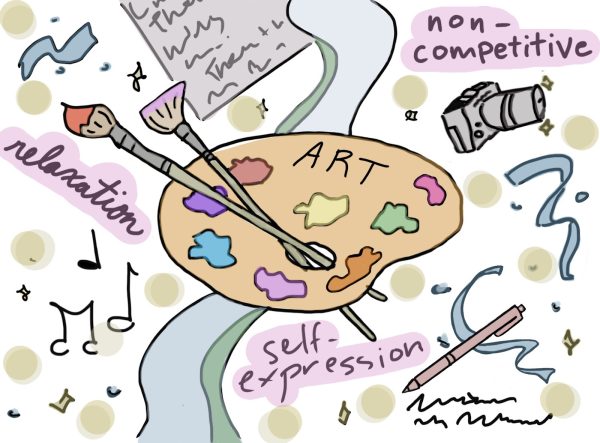Demanding summer internships is a mistake
Colleges will drive away low-income students if they make interning experience mandatory
Photo by Aishwarya Jayadeep
Summer internships are generally less lucrative than part-time jobs.
This summer, many students will be going into summer internships, which are great opportunities to gain experience in an interesting field of work, to see if a certain profession is right for them, or — let’s be honest — to pad up a résumé. But despite the myriad benefits brought around by summer internships, colleges shouldn’t make it mandatory for students to have done them during high school.
After all, not all of us have the time to be doing summer internships. Not all of us can afford to be do summer internships, either. Making them necessary to get into college will leave students from low-income households in the dust, at even more of a disadvantage in the path to college.
In low-income households, scraping together the money to send someone to college can be a challenge, so using your time getting experience in a field you’re interested in through internships is probably not a priority if you need to use that time to earn money to get college and eventually work in that field.
But what about paid internships? According to glassdoor.com, the salaries for paid internships average out at about $10 to $12 per hour, unless you’re one of the lucky ones interning for Microsoft or Facebook.
Or consider some of the most popular (and stereotypical) teen jobs. According to NBC news, babysitters earn an average of $12.50 per hour, and Forbes reported that teens in retail earn $11 to $13 an hour, and tutors earn around $15 an hour. All of these popular part-time jobs pay more than the usual paid internship (again, the exception being if you’re interning for a company like Microsoft).
Many paid internships aren’t even long-term, unlike part-time jobs that you could presumably hold down for years. Some internships run through a school year. Others go through eight-week cycles. Some don’t even pay.
The college recruiting firm Intern Bridge found in a study that more students from higher-income (above $120,000 a year) households spring for more unpaid internships — likely because a majority of them are less dependent on extra income.
This makes sense. Students from low-income families who aspire to go to college may try to balance out colleges’ demands for “real world experience” with earning the actual money to go to college and cover expenses financial aid doesn’t support by getting a part-time job that most likely pays more than many paid internships.
Yes, internships are great! Knowledge is power, and real-world experience in the field you want to go into is never a bad thing. But if a college mandates that you must have had an internship during a high school summer, students from low-income households will be pushed into using their valuable free time to accept lower-paying internships rather than higher-paying part-time jobs. They’ll earn less, affecting how much they can save up for college, and could end up not attending anyway.
And, colleges — it’s fine to pick and choose students who’ve “really” experienced the jobs they want to go into, students who’ve picked out and lined up their futures so neatly they’ve interned in the field they plan to love. But if you’re trying to get more students from low-income families to attend by setting up programs like financial aid and scholarships, you’ll end up contradicting your own goal in your quest for the students most ready for the real world.
Besides, what makes a part-time job at McDonald’s any less a real world experience than an internship at a “respectable” for-profit?












Aaron Fukuoka • Nov 15, 2017 at 10:44 pm
I am in full support of the idea that requiring summer internships is a big mistake. There are several other ways to express interest in a specific field, one is working in a church to express interest in religious studies. However, the idea that a part-time job at McDonald’s deserves equal attention to any internship is preposterous. Students work hard to earn a spot in internships in high-end companies like IBM, and to neutralize its value is an insult to those students’ efforts.